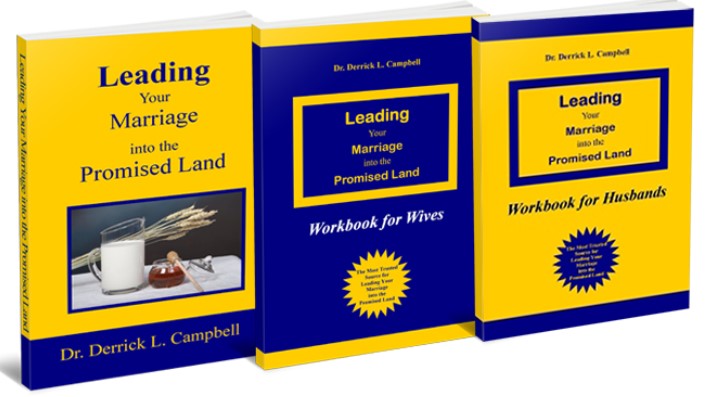How can couples keep their marriage from ending in divorce?
In a recent article, Reverend D.E. Parkerson authored an article titled ‘The Paper Pulpit” Marriage doesn’t have to end in divorce’. The article provides advice to enhance marriages. The article falls short in providing advice based on the original design for marriage.
To keep a marriage from ending in divorce, Parkerson surmises that:
- Marriages are often wrecked by such character failures as dishonesty, unfaithfulness, alcohol, selfishness, and the list goes on and on. When problems are not faced openly and honestly, there is a strong likelihood that the marriage will become progressively worse until it becomes almost unbearable.
- If a marriage is to be all that it ought to be and can be, both husband and wife must genuinely listen to each other and support each other as they build a mature home where God is honored.
- Solutions to the problems in any marriage are available if both husband and wife will do two very important things: ask for God’s guidance, and demonstrate a willingness to work at it.
Parkerson emphasizes that divorce is a product of character flaws. However, many people take on some of the following Christian qualities and end their marriage in a divorce.
- Alertness vs. Unawareness Being aware of that which is taking place around me so I can have the right response to it (Mark 14:38)
- Attentiveness vs. Unconcern Showing the worth of a person by giving undivided attention to his words and emotions (Hebrews 2:1)
- Availability vs. Self-centeredness Making my own schedule and priorities secondary to the wishes of those I am serving (Philippians 2:20–21)
- Boldness vs. Fearfulness Confidence that what I have to say or do is true and right and just in the sight of God (Acts 4:29)
- Cautiousness vs. Rashness Knowing how important right timing is in accomplishing right actions (Proverbs 19:2)
- Compassion vs. Indifference Investing whatever is necessary to heal the hurts of others (I John 3:17)
- Contentment vs. Covetousness Realizing that God has provided everything I need for my present happiness (I Timothy 6:8)
- Creativity vs. Underachievement Approaching a need, a task, an idea from a new perspective (Romans 12:2)
- Decisiveness vs. Double-mindedness The ability to finalize difficult decisions based on the will and ways of God (James 1:5)
- Deference vs. Rudeness Limiting my freedom in order not offend the tastes of those whom God has called me to serve (Romans 14:21)
- Dependability vs. Inconsistency Fulfilling what I consented to do even if it means unexpected sacrifice (Psalm 15:4)
- Determination vs. Faintheartedness Purposing to accomplish God’s goals in God’s time regardless of the opposition (II Timothy 4:7–8)
- Dligence vs. Slothfulness Visualizing each task as a special assignment from the Lord and using all my energies to accomplish it (Colossians 3:23)
- Discernment vs. Judgment The God-given ability to understand why things happen (I Samuel 16:7)
- Discretion vs. Simplemindedness The ability to avoid words, actions, and attitudes which could result in undesirable consequences (Proverbs 22:3)
- Endurance vs. Giving up The inward strength to withstand stress to accomplish God’s best (Galatians 6:9)
- Enthusiasm vs. Apathy Expressing with my soul the joy of my spirit (I Thessalonians 5:16,19)
- Faith vs. Presumption Visualizing what God intends to do in a given situation and acting in harmony with it (Hebrews 11:1)
- Flexibility vs. Resistance Not setting my affections on ideas or plans which could be changed by God or others (Colossians 3:2)
- Forgiveness vs. Rejection Clearing the record of those who have wronged me and allowing God to love them through me (Ephesians 4:32)
- Generosity vs. Stinginess Realizing that all I have belongs to God and using it for His purposes (II Corinthians 9:6)
- Gentleness vs. Harshness Showing personal care and concern in meeting the need of others (I Thessalonians 2:7)
- Gratefulness vs. Unthankfulness Making known to God and others in what ways they have benefited my life (I Corinthians 4:7)
- Hospitality vs. Loneliness Cheerfully sharing food, shelter, and spiritual refreshment with those whom God brings into my life (Hebrews 13:2)
- Humility vs. Pride Recognizing that it is actually God and others who are responsible for the achievements in my life (James 4:6)
- Initiative vs. Unresponsiveness Recognizing and doing what needs to be done before I am asked to do it (Romans 12:21)
- Joyfulness vs. Self-pity The spontaneous enthusiasm of my spirit when my soul is in fellowship with the Lord (Psalm 16:11)
- Justice vs. Fairness Personal responsibility to God’s unchanging laws (Micah 6:8)
- Love vs. Selfishness Giving to others’ basic needs without having as my motive personal reward (I Corinthians 13:3)
- Loyalty vs. Unfaithfulness Using difficult times to demonstrate my commitment to God and to those whom He has called me to serve (John 15:13)
- Meekness vs. Anger Yielding my personal rights and expectations to God (Psalm 62:5)
- Obedience vs. Willfulness Freedom to be creative under the protection of divinely appointed authority (II Corinthians 10:5)
- Orderliness vs. Disorganization Preparing myself and my surroundings so I will achieve the greatest efficiency (I Corinthians 14:40)
- Patience vs. Restlessness Accepting a difficult situation from God without giving Him a deadline to remove it (Romans 5:3–4)
- Persuasiveness vs. Contentiousness Guiding vital truths around another’s mental roadblocks (II Timothy 2:24)
- Punctuality vs. Tardiness Showing high esteem for other people and their time (Ecclesiastes 3:1)
- Resourcefulness vs. Wastefulness Wise use of that which others would normally overlook or discard (Luke 16:10)
- Responsibility vs. Unreliability Knowing and doing what both God and others are expecting from me (Romans 14:12)
- Reverence vs. Disrespect Awareness of how God is working through the people and events in my life to produce the character of Christ in me (Proverbs 23:17–18)
- Security vs. Anxiety Structuring my life around that which is eternal and cannot be destroyed or taken away (John 6:27)
- Self-Control vs. Self-indulgence Instant obedience to the initial promptings of God’s Spirit (Galatians 5:24–25)
- Sensitivity vs. Callousness Exercising my senses so I can perceive the true spirit and emotions of those around me (Romans 12:15)
- Sincerity vs. Hypocrisy Eagerness to do what is right with transparent motives (I Peter 1:22)
- Thoroughness vs. Incompleteness Knowing what factors will diminish the effectiveness of my work or words if neglected (Proverbs 18:15)
- Thriftiness vs. Extravagance Not letting myself or others spend that which is not necessary (Luke 16:11)
- Tolerance vs. Prejudice Acceptance of others as unique expressions of specific character qualities in varying degrees of maturity (Philippians 2:2)
- Truthfulness vs. Deception Earning future trust by accurately reporting past facts (Ephesians 4:25)
- Virtue vs. Impurity The moral excellence and purity of spirit that radiate from my life as I obey God’s Word (II Peter 1:3)
- Wisdom vs. Natural Inclinations Seeing and responding to life’s situations from God’s frame of reference (Proverbs 9:10)
Parkerson further emphasizes that avoiding divorce requires communication between the husband and wife. Even though couples may use some of the following communication techniques, their marriage finally ends in a divorce.
According to Joshua Duvauchelle, couples can enhance marriage communication by:
- If you and your spouse have a disagreement, explain what’s bothering you in a non-accusatory manner. “Use all the restraint you can muster to not say, ‘You never’ or ‘You always,’ ” suggests Sally Landau, a certified life coach.
- But sometimes, discretion is okay. “Everything in your head does not need to be said,” says Stephanie Staples, a motivational speaker and wife of 22 years. “I know you think you will explode, but . . . ask yourself if what you are about to say is going to help or hurt your relationship.”
- Have an attitude of gratitude. “Recent studies . . . reveal that gratitude benefits both the giver and the receiver,” reports Todd Reed, a communication coach and author. “When either of you does something nice for the other – lets you sleep in, washes the dishes when it’s your turn – take a second to show appreciation. Even if you’re just saying thanks for the small stuff, it can go a long way in solidifying your relationship.”
- Use “hot words” when things get heated . “Never respond when you are angry – leave the room or the house if you need to cool off,” advises Elle Swan, an international speaker and life coach. “Establish a ‘hot word’ that each person can use to let the other person know, ‘I am angry and we need to stop talking.’ ” Examples of hot words include “cancel” or “break.” Once you’ve both calmed down, resume the conversation. “The best way to fully understand what your spouse is saying,” she says, “is to ask clarifying questions. A clarifying question always begins with, ‘What I hear you saying is . . . . Is that correct?’” This will give your spouse a chance to either agree or clarify what they meant. “The goal is to always communicate with a calm, level head.”
- Express your needs or wants clearly. “You did not marry your clone,” notes Debbie Mandel, a radio host and author of Addicted to Stress. “So, be specific when communicating to your spouse. Do not take for granted that he or she has read your mind or intuits what you want.”
Show how much you love your spouse
- Write a love note – the classic way to express yourself, and a practice that has slowly been replaced in our modern times. “In an age of virtual communication,” says Farrah Parker, an interpersonal communications instructor at California State University, “couples may benefit from giving and/or receiving a handwritten note – not an email, not a text message, but an actual pen and paper.”
- Take a class together. “Couples who are not engaged in any joint activities,” says Sharon Gilchrest O’Neill, a marriage and family psychotherapist and author, “are living ‘parallel lives’ like young children in parallel play; there is no real connection. Without joint time and activities, intimacy suffers.” The benefits are many. “Learning together alleviates boredom, routine and the doldrums,” she says, “and allows us to see our spouse in a different light. This keeps the creative juices flowing, making a person more interesting. It also allows for new and interesting conversations, whether during the activity and/or after it.” O’Neill specifically recommends taking a cooking class, because the act of making a meal and enjoying it together creates a sense of security and safety in your marriage.
- Go beyond simple “I love you” remarks. “Use character-quality language,” suggests Susanne Alexander, a marriage coach. “When couples say specifically, ‘I love how enthusiastic (or courageous, or caring, or thoughtful . . .) you are,’ it goes right to the heart. Add specifics about what actions were taken and it works like giving gold.”
- Dates – even cheap fast-food ones – are important. “You don’t have to break the bank to enjoy time with your spouse,” says pastor Ryan Dalgliesh, author of Love Notes: A Biblical Look at Love. “Plan a regular night each week that you can call a date night. As a poor preacher, our monthly budget is $100. Once a month, we go to a nicer restaurant. The other three weeks, we hit up Chick-Fil-A or Subway. We just make a point to have time alone. It is always very refreshing.”
- But you can even make a date night at home, even with your kids. “Many couples are harried at the end of the day and dinner gets thrown on the table,” says Michael Jonas, who creates conversation-starting board games for couples along with his wife, Barbara. Make a more intimate atmosphere at the dinner table with matching dishware, a sprig of flowers and softer lighting. “These specific things calm the day’s end and invite conversation – even with children, who often learn from what they observe their parents do rather than what their parents say.”
- Make a souvenir that celebrates a special moment that you and your spouse shared. “Find a favourite photograph of the two of you and have it printed on a mouse pad or a large magnet,” says Jason Coleman, author of Discovering Your Amazing Marriage. “I did this almost seven years ago with a photo we took at the beach one summer. At the local office supply store, I found a box of printable magnetic paper. I made a large refrigerator magnet with our picture on it, from our home computer and printer . . . and it’s still on our fridge to this day!”
Finally, Parkerson solving marriage problems by seeking God and demonstrating that you truthfully desire to have a happy marriage.
While I believe that Parkerson’s suggestions, as well as the other authors note in this Blog have some validity, I believe that if the perspective husband and wife understand the original purpose for marriage the can have all of the benefits that God desires.
According Genesis 2:15-18, the original purpose of man is to serve God and to be a good steward over the resources that Goad has provided. The next step is that men must obey God. And finally, the man become the team leader in the area that God has ordained for him to serve.
And the Lord God took the man, and put him into the garden of Eden to dress it and to keep it. And the Lord God commanded the man, saying, Of every tree of the garden thou mayest freely eat: But of the tree of the knowledge of good and evil, thou shalt not eat of it: for in the day that thou eatest thereof thou shalt surely die. And the Lord God said, It is not good that the man should be alone; I will make him an help meet for him (Genesis 2:15-18).
Couples who desire to avoid divorce must follow the principles of the original design of marriage.
Related Articles
How shacking up leads to divorce
Getting divorced without breaking the bank
A Fair and Equitable Divorce — Even During Valentine’s Day
Dr. Derrick and Mrs. Sheila Campbell PO Box 1668 Blackwood, NJ 08012 (856) 566-3267 www.advancedmarriagetraining.com
Published books – Leading Your Marriage into the Promised Land -Leading Your Marriage into the Promised Land (Workbook for husbands & Wives) – Advanced Marriage Training for Singles


“I was blessed by the love and sensitivity that you and your wife showed during the presentation”.
Bishop Joseph P. Ravenell
Samaritan Baptist Church
Trenton, NJ “I would highly recommend you to any church or organization desiring to provide their people with timely marital wisdom and practical application skills”.
Dr. James E. Woods, II
El Shaddia Christian Assembly
Philadelphia, PA
